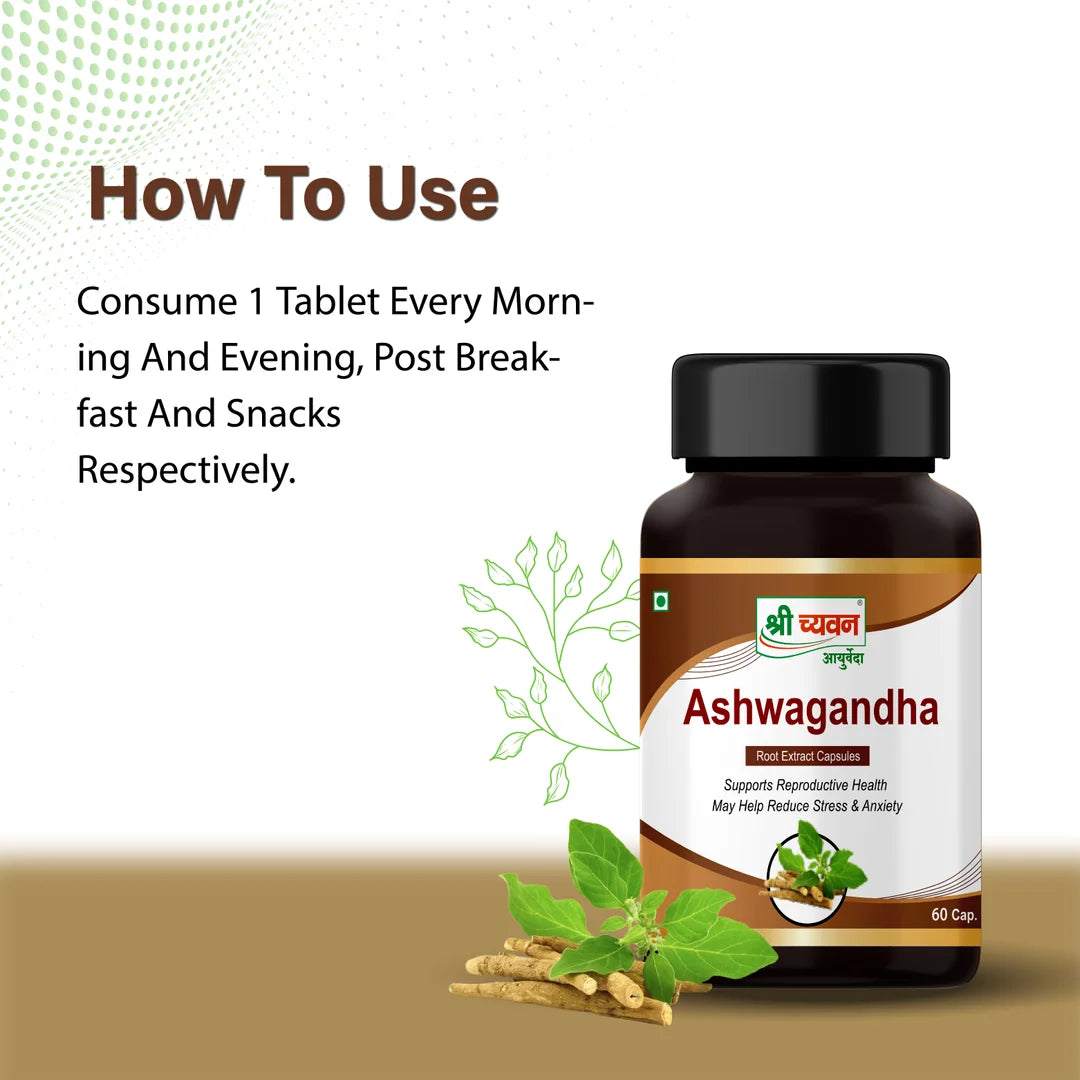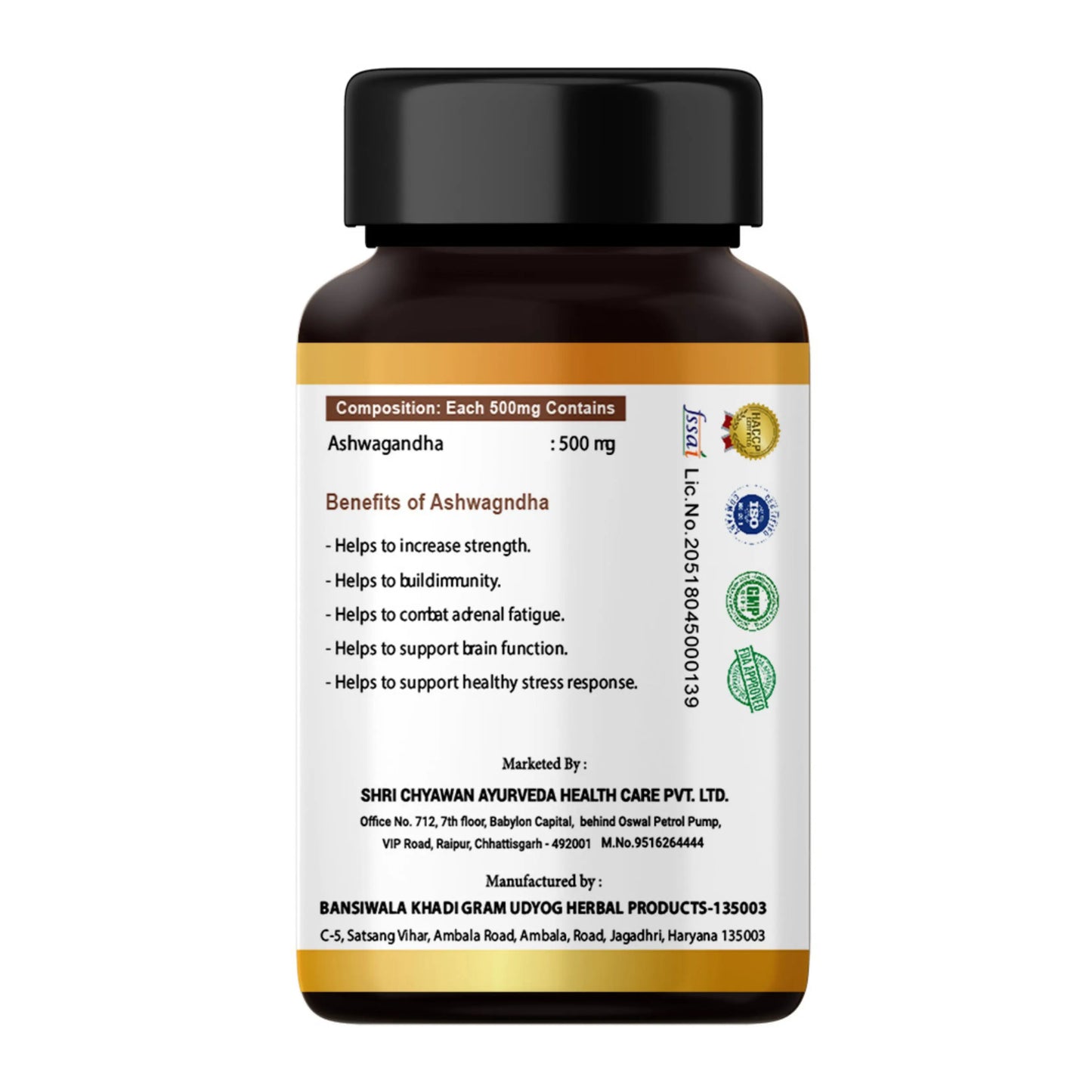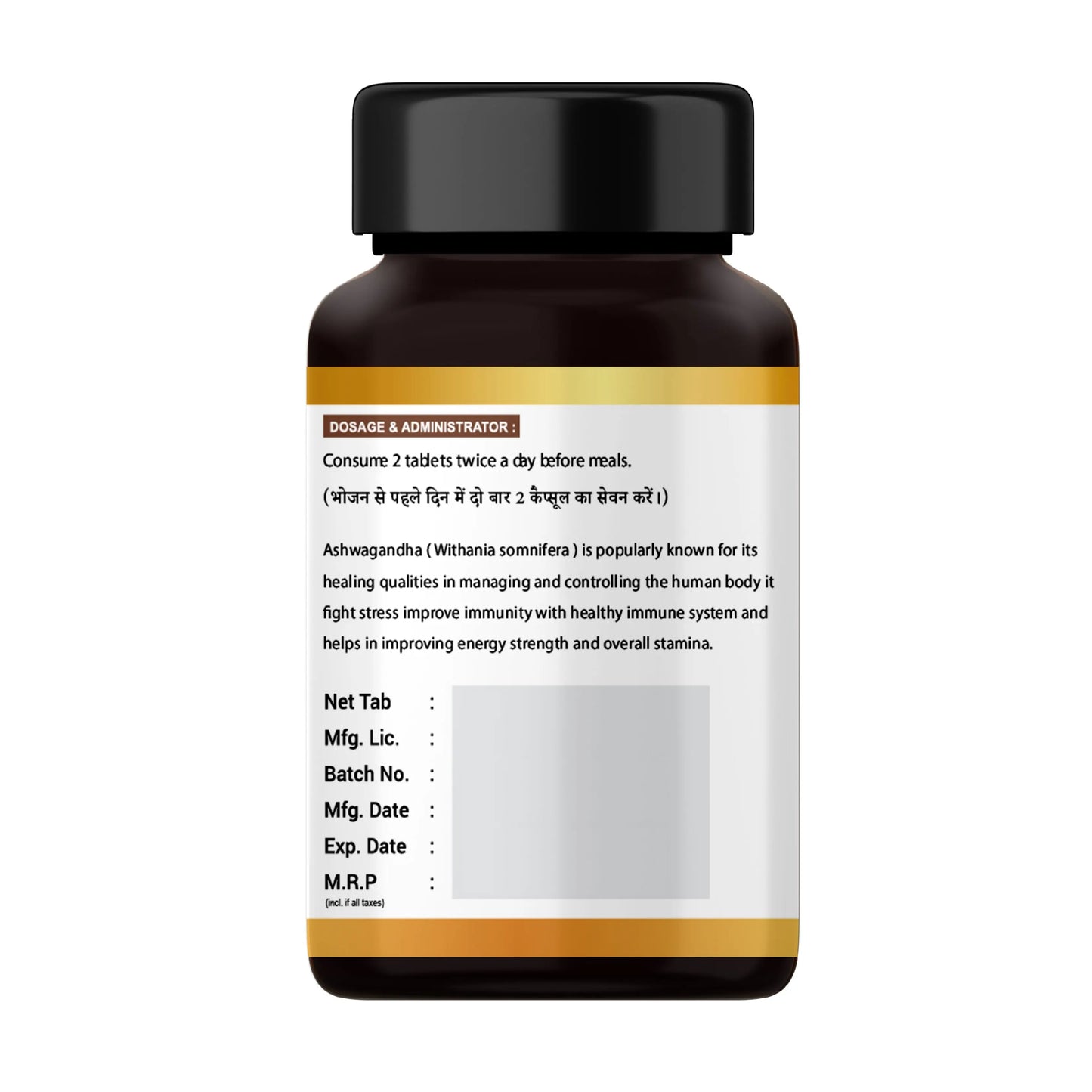Introduction
Ashwagandha, also known as Withania somnifera, is a revered herb in traditional Ayurvedic medicine. Celebrated for its adaptogenic properties, it has been used for centuries to help the body cope with stress and promote overall wellness. However, while it offers numerous benefits, it’s important to be aware of its potential side effects.
What is Ashwagandha?
Ashwagandha is an adaptogenic herb native to India, the Middle East, and parts of Africa. Often referred to as "Indian ginseng" or "winter cherry," it is known for its ability to enhance the body's resilience to stress. The root and leaves of the plant are used to produce various forms, including powders, capsules, and tinctures.
Overview of its Benefits
1. Stress Relief: Ashwagandha helps reduce cortisol levels, the hormone associated with stress.
2. Improved Sleep: It may enhance sleep quality and help with insomnia.
3. Enhanced Cognitive Function: Some studies suggest it can improve memory and cognitive abilities.
4. Boosted Immunity: Ashwagandha supports the immune system and promotes overall health.
5. Increased Energy Levels: It may enhance physical performance and reduce fatigue.
6. Hormonal Balance: Ashwagandha can support hormonal health, particularly in men, by enhancing testosterone levels.
While Ashwagandha has many potential benefits, it's essential to consider any possible side effects before incorporating it into your wellness routine.
Common Ashwagandha Side Effects
While Ashwagandha is generally considered safe for most people, it can lead to some side effects, particularly if taken in excessive amounts or without proper guidance. Here are some of the common side effects associated with its use:
Gastrointestinal Issues
One of the most frequently reported side effects of Ashwagandha is gastrointestinal discomfort. This can include:
- Nausea: Some users may experience feelings of nausea after taking Ashwagandha, especially on an empty stomach.
- Diarrhea: High doses can lead to digestive disturbances, including diarrhea or loose stools.
- Stomach Cramps: Some individuals may experience cramping or abdominal pain.
To minimize these effects, it’s advisable to take Ashwagandha with food and start with a lower dosage.
Drowsiness and Sedation
Ashwagandha is known for its calming effects, which can be beneficial for stress relief and anxiety management. However, this can also lead to:
- Drowsiness: Some individuals may feel excessively sleepy or lethargic, particularly if they take higher doses.
- Sedation: It may enhance the effects of other sedatives or medications, leading to increased drowsiness.
If you need to remain alert, it’s best to monitor your intake and consult with a healthcare professional regarding timing and dosage.
Allergic Reactions
Though rare, some individuals may experience allergic reactions to Ashwagandha, which can include:
- Rashes: Skin rashes or irritation may occur in sensitive individuals.
- Itching or Swelling: Symptoms may include itching or swelling, particularly around the face or throat.
If you experience any signs of an allergic reaction, it is crucial to stop using Ashwagandha immediately and seek medical attention.
Understanding the common side effects of Ashwagandha can help users make informed decisions about its use. While many people benefit from its properties, being aware of potential adverse effects ensures a safer experience. Always consider consulting a healthcare professional before starting any new supplement regimen.
Less Common Side Effects
In addition to the more common side effects, Ashwagandha can also lead to some less frequently reported issues. Understanding these can help users take appropriate precautions.
Hormonal Effects
Ashwagandha is known to influence hormone levels in the body, which may lead to:
- Changes in Testosterone Levels: While it can boost testosterone in some men, excessive use may lead to hormonal imbalances.
- Menstrual Changes: Women may experience irregularities in their menstrual cycle, including changes in flow or timing.
- Thyroid Hormone Levels: Ashwagandha can stimulate thyroid function, which may not be suitable for individuals with hyperthyroidism or those taking thyroid medications.
It’s essential to monitor hormonal changes and consult a healthcare professional if you have any concerns.
Interactions with Medications
Ashwagandha may interact with various medications, including:
- Sedatives: Combining Ashwagandha with sedative medications can enhance their effects, leading to excessive drowsiness.
- Thyroid Medications: Those on thyroid medications should be cautious, as Ashwagandha can alter thyroid hormone levels.
- Diabetes Medications: Ashwagandha may lower blood sugar levels, so it could interact with diabetes medications, potentially leading to hypoglycemia.
If you are taking any medications, it's crucial to discuss Ashwagandha use with your healthcare provider.
Effects on Blood Sugar Levels
Ashwagandha may influence blood sugar levels, which can be a concern for:
- Individuals with Diabetes: Ashwagandha has been shown to lower blood sugar levels, which could lead to hypoglycemia if taken alongside diabetes medications.
- Pre-diabetic Conditions: Those with insulin resistance or pre-diabetes should monitor their blood sugar levels carefully when using Ashwagandha.
It is advisable to consult with a healthcare professional to ensure that any changes in blood sugar levels are managed effectively.
While Ashwagandha offers numerous benefits, it is important to be aware of these less common side effects. Always consult a healthcare professional before starting any new supplement, especially if you have underlying health conditions or are taking other medications. This can help ensure safe and effective use of Ashwagandha in your wellness routine.
Who Should Avoid Ashwagandha?
While Ashwagandha can provide numerous health benefits, certain groups of people should exercise caution or avoid its use altogether. Below are the primary categories of individuals who should consider avoiding Ashwagandha:
Pregnant and Nursing Women
- Pregnancy Risks: Ashwagandha may stimulate uterine contractions, potentially leading to miscarriage or complications during pregnancy. Due to this risk, it is generally advised that pregnant women avoid using Ashwagandha.
- Breastfeeding Concerns: The safety of Ashwagandha during lactation is not well-studied. Therefore, nursing mothers should consult a healthcare provider before using this herb.
Individuals with Certain Health Conditions
- Thyroid Disorders: Those with hyperthyroidism or other thyroid conditions should avoid Ashwagandha, as it can stimulate thyroid hormone production, potentially exacerbating these conditions.
- Autoimmune Diseases: Individuals with autoimmune conditions such as lupus, rheumatoid arthritis, or multiple sclerosis should use Ashwagandha with caution. It may stimulate the immune system, which could worsen symptoms.
- Hormonal Imbalances: Those with hormone-sensitive conditions (like certain cancers) should consult a healthcare professional before using Ashwagandha, as it may affect hormone levels.
- Diabetes: Individuals with diabetes should be cautious, as Ashwagandha can lower blood sugar levels. Close monitoring is essential if you are on medication for diabetes.
- Digestive Disorders: People with gastrointestinal issues may experience exacerbation of symptoms, such as diarrhea or nausea, and should consider avoiding Ashwagandha.
If you fall into any of these categories, it's crucial to consult a healthcare professional before using Ashwagandha. Individual health circumstances can greatly influence the appropriateness of this herb, and professional guidance can help ensure safe usage. Being informed about potential risks is essential for maintaining overall health and well-being.
How to Use Ashwagandha Safely
To maximize the benefits of Ashwagandha while minimizing the risk of side effects, it's important to use it safely. Here are some guidelines on recommended dosage and tips for first-time users.
Recommended Dosage
- Standard Dosage: The typical dosage of Ashwagandha root extract ranges from 300 mg to 600 mg per day, taken in divided doses.
- Forms of Ashwagandha:
- Powder: If using powdered root, 1 to 2 teaspoons (approximately 3 to 6 grams) per day is common.
- Capsules: Capsules usually contain about 300 mg to 600 mg of extract, and it's best to follow the manufacturer's recommendations.
- Gradual Increase: For first-time users, starting with a lower dosage and gradually increasing it can help assess tolerance.
Tips for First-Time Users
1. Consult a Healthcare Professional: Before starting Ashwagandha, especially if you have underlying health conditions or are taking medications, consult with a healthcare provider.
2. Take with Food: Consuming Ashwagandha with meals may help reduce gastrointestinal discomfort and enhance absorption.
3. Monitor Your Body's Response: Pay attention to how your body reacts after taking Ashwagandha. Note any side effects or changes in mood, energy levels, or sleep patterns.
4. Avoid Mixing with Sedatives: If you are taking medications that cause drowsiness, consult your doctor before using Ashwagandha, as it may enhance those effects.
5. Stay Hydrated: Drinking plenty of water can help mitigate potential side effects and improve overall well-being.
6. Duration of Use: It's often recommended to take Ashwagandha in cycles. For example, using it for 8 to 12 weeks followed by a break of 4 weeks can help prevent tolerance buildup.
7. Be Patient: The effects of Ashwagandha may take time to manifest. Consistency in usage is key, so give it a few weeks to notice any benefits.
Using Ashwagandha safely involves adhering to recommended dosages and being mindful of your body's response. By following these guidelines, you can enjoy the potential benefits of this adaptogenic herb while minimizing risks. Always prioritize consultation with a healthcare professional to tailor its use to your individual needs.
Consulting a Healthcare Professional
When considering the use of Ashwagandha, consulting a healthcare professional is crucial for ensuring safe and effective use. Here’s why professional guidance is important and some questions you may want to ask your doctor.
Importance of Professional Guidance
1. Personalized Recommendations: A healthcare provider can assess your individual health needs, conditions, and medications to determine whether Ashwagandha is suitable for you.
2. Avoiding Interactions: Professionals can identify potential interactions between Ashwagandha and any other medications or supplements you may be taking.
3. Monitoring Side Effects: Your healthcare provider can help you monitor for any adverse effects and adjust your dosage or treatment plan as necessary.
4. Guidance on Duration: Professionals can advise on how long to take Ashwagandha and whether you should cycle its use to avoid tolerance.
5. Addressing Underlying Conditions: If you have existing health issues, a healthcare provider can help address how Ashwagandha may affect those conditions.
Questions to Ask Your Doctor
1. Is Ashwagandha appropriate for me?- Ask if it’s suitable given your health history and current medications.
- Inquire about the ideal dosage tailored to your needs.
- Understanding possible side effects can help you stay vigilant.
- Discuss the duration of use and whether cycling is recommended.
- Ask specifically about any potential interactions with medications you are currently taking.
- Know the steps to take if you encounter any adverse reactions.
- Explore other options that may be more suitable for your needs.
Consulting a healthcare professional before starting Ashwagandha is a vital step in ensuring your safety and maximizing its benefits. By asking the right questions, you can make informed decisions and tailor your health strategy to suit your individual circumstances. Always prioritize your health and well-being when considering new supplements.
Shri Chyawan Ayurveda's Ashwagandha Capsule
Ashwagandha Capsule: It is the most important and miraculous ayurvedic medicine offering number of benefits. It also contains certain ingredients that help calm the brain, reduce swelling, lower blood pressure, etc. It is also called Winter Cherry.
Ashwagandha Capsule Ingredients: It consists of pure Ashwagandha root extracts.
Ashwagandha for Men:
Ashwagandha is a remarkable herb with a myriad of benefits for men. Whether it's enhancing physical performance, promoting mental well-being, or supporting sexual health, this adaptogen is a versatile ally in the journey to optimal health and vitality. Its benefits for men are manifold, encompassing physical, mental, and emotional well-being.
Ashwagandha for Women:
Ashwagandha offers immense benefits for women, addressing a wide range of health concerns from hormonal balance and fertility to stress management, cognitive function, and skin health. It offers numerous incredible benefits for women's health and well-being. Its natural properties can support physical, emotional, and mental health in various ways.
Ashwagandha Capsule Benefits:
-
Reduces Stress and Anxiety: Ashwagandha is best and popularly known for its ability to reduce stress and anxiety. It’s also classified as an adaptogen, a substance that helps the body to cope with stress.
-
Improves Sleep Quality: Ashwagandha effectively helps to improve sleep quality and regulates your sleep cycle. It helps to combat fatigue and boosts energy.
-
Improves Testosterone Levels: Ashwagandha helps to improve testosterone levels, which improves overall physical performance and boosts vitality and stamina.
-
Boosts Immunity: Ashwagandha is known to increase the White Blood Cells, which thereby helps to boost your overall immunity to fight various illness.
-
Blood Sugar and Inflammation: Ashwagandha helps to maintain ideal blood sugar levels, reduces inflammation, and improves skin health.
- Natural & Pure: Ashwagandha capsules are made from Ashwagandha root extracts and they are pure and natural.
How to use: Consume 2 capsules twice a day before meals.
Conclusion
In summary, Ashwagandha is a powerful adaptogenic herb that offers numerous health benefits, particularly in managing stress, improving sleep, and enhancing overall well-being. However, like any supplement, it is essential to be aware of potential side effects and who should avoid its use.
Summary of Key Points
1. Common Side Effects: These include gastrointestinal issues, drowsiness, and possible allergic reactions.
2. Less Common Side Effects: Hormonal changes, interactions with medications, and effects on blood sugar levels are important to consider.
3. Who Should Avoid It: Pregnant and nursing women, individuals with thyroid disorders, autoimmune diseases, or those taking certain medications should consult a healthcare professional before use.
4. Safe Usage: Following recommended dosages and seeking professional guidance is crucial for safe use.
5. Consulting Healthcare Professionals: Getting personalized advice can help prevent interactions and ensure effective use of Ashwagandha.
Final Thoughts on Ashwagandha Use
Ashwagandha can be a valuable addition to a wellness routine, promoting mental clarity and physical health. However, it’s vital to approach its use with caution and knowledge. Always listen to your body and consult with a healthcare provider to tailor your use of Ashwagandha to your unique health needs. By doing so, you can harness the benefits of this ancient herb while minimizing risks, leading to a more balanced and healthy lifestyle.
Free Consultation with our Expert Doctor- 📞📞 95162 64444










